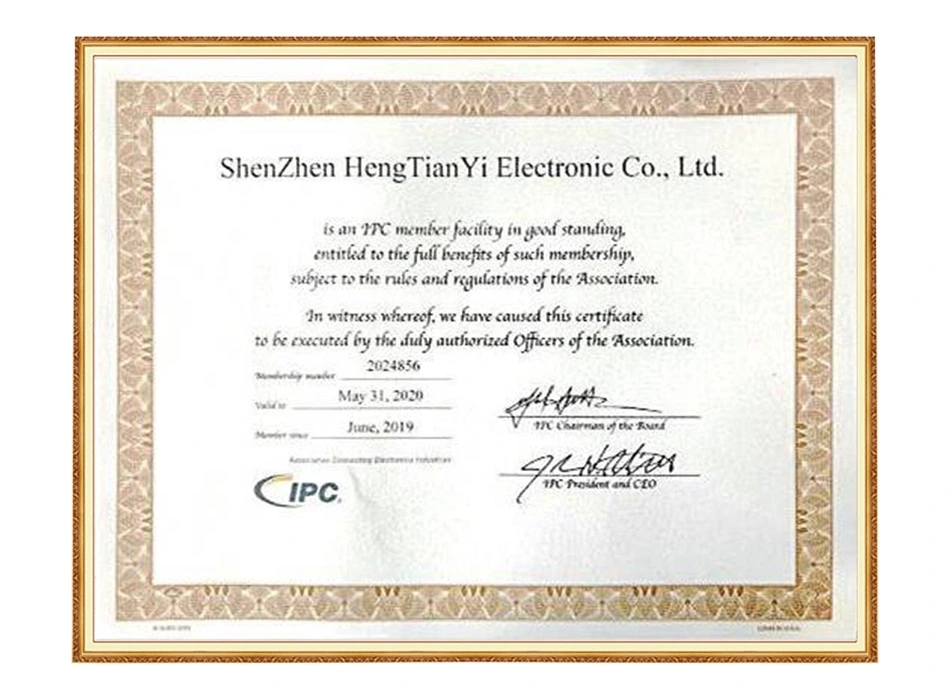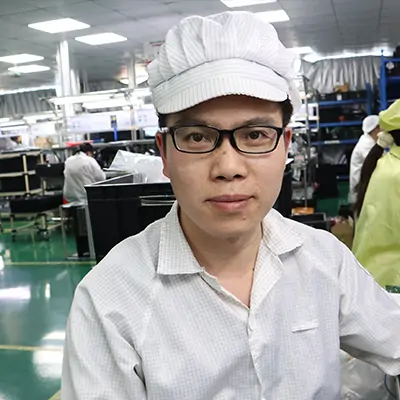Global high-mix volume high-speed PCBA manufacturer
9:00 -18:00, Mon. - Fri. (GMT+8)
9:00 -12:00, Sat. (GMT+8)
(Except Chinese public holidays)
Global high-mix volume high-speed PCBA manufacturer
9:00 -18:00, Mon. - Fri. (GMT+8)
9:00 -12:00, Sat. (GMT+8)
(Except Chinese public holidays)
HomePage > Blog > Knowledge Base > A Leading PCBA Manufacturer with IPC/WHMA-A-620 Certification
In the electronics manufacturing and assembly industry, the quality of cables and wiring harnesses is directly related to the performance and safety of products. As a leading PCBA manufacturer committed to quality excellence, we obtained the IPC/WHMA-A-620 certificate and use this standard to provide our customers with highly reliable cable and harness assemblies that meet global quality standards. Through strict quality control, we not only ensure the stability of products, but also bring obvious benefits to customers. IPC-A-620 certification is more than just a qualification, it is a strong demonstration of our commitment to providing high-quality products to our customers.

IPC/WHMA-A-620 Cable and harness assembly requirements and acceptance standards, the full form of IPC-A-620, is jointly developed by IPC (International Electronic Industry Connection Association) and WHMA (Harness Manufacturers Association) recognized quality standards for cable and harness assembly in the electronics industry. This standard specifies the design, production and inspection requirements of cable and harness assembly and is a reliable quality standard guide for manufacturers, providing clear guidance on all aspects of cable and harness assembly. Here are some aspects:
The IPC-A-620 standard makes detailed requirements for the assembly process of cables and wiring harnesses. For example:
Crimping (the process of mechanically binding the wire to the terminal to ensure the reliability of the electrical connection): IPC-A-620 specifies the shape, size, position and strength of the crimping in detail to ensure that each crimping contact meets the corresponding mechanical strength requirements to avoid loosening or breaking during use.
Soldering (a key process to ensure good electrical contact between wires and connectors): IPC-A-620 provides detailed guidance on welding quality, including standards for the appearance of solder joints, solder usage, soldering location, etc.: Solder joints should be free of obvious welding defects, such as cold soldering, overheating, too much or too little solder, etc. The solder joint should be smooth and free of burrs, and the welding area should not have insulation damage.
IPC-A-620 provides specific acceptance criteria and inspection procedures for quality control and visual inspection, including:
Acceptance criteria: IPC-A-620 standards (including the quality of electrical contact, the integrity of physical appearance, the solidity of welding and crimping, the integrity of insulation, etc.) describe the qualification conditions of cable and wire harness products in detail, and classify them as acceptable, and unqualified.
Inspection process: To ensure that each harness assembly meets the requirements of IPC-A-620, visual and functional inspection is required at each production stage, including checking the connectivity of wiring, whether the welding is complete, whether the insulation is damaged, etc. These inspection steps can significantly reduce the rate of defects, improve production efficiency and product quality.

|
Module |
Details |
|
Achieving IPC-A-620 Certification |
- Select and train skilled professionals: Select experienced technicians and provide IPC-A-620 training to meet high standards of assembly skills. - Comprehensive training program: Teams participate in IPC-A-620 compliance training to ensure compliance with certification requirements at every step of the assembly process. - Regular recertification: Through recertification to maintain the consistency of technology and process, to ensure the supply of high-quality products to customers. |
|
Applying IPC-A-620 Standards to Deliver Reliable Assemblies |
- No Defect policy: Aim for zero defects to minimize errors in cable and harness assembly. - Rigorous inspection at each production stage: Detailed inspection at each production stage to ensure compliance with IPC-A-620 standards. - High standards of crimping, welding and insulation: Strict compliance with key steps of IPC-A-620 such as crimping and insulation for durability and safety. Improve delivery efficiency: Standardized processes help reduce lead times while maintaining consistency from shipment to shipment. |
|
EPTAC-Backed Training |
- Certified Assembly Specialists: Hire certified experts to ensure accuracy, especially in complex assembly requirements. - Hands-on training laboratory: Provides a real assembly environment to enhance the application of standards in real production. - Continuous recertification: Continuous recertification to strengthen quality management capabilities and ensure the consistency of customer product quality. - Flexible learning formats: Stay up to date with the latest standards and practices through face-to-face, online and blended training options. |
|
Benefits of IPC-A-620 Certification for Your Business |
- Strengthen customer trust: Transparent quality control processes enhance customer confidence in the quality of our products. - Exceeding industry standards: Our products meet or exceed global quality requirements, providing customers with a stronger market advantage. - Lower customer costs: Our stable and reliable production reduces the need for rework and maintenance, reducing overall costs for our customers. - Collaboration success: We work closely with our customers to provide high-quality, certified cable and harness components to enhance the competitiveness of their products. |

Assembly Enquiry
Instant Quote
Phone contact

+86-755-27218592
In addition, we've prepared a Help Center. We recommend checking it before reaching out, as your question and its answer may already be clearly explained there.
Wechat Support

In addition, we've prepared a Help Center. We recommend checking it before reaching out, as your question and its answer may already be clearly explained there.
WhatsApp Support

In addition, we've prepared a Help Center. We recommend checking it before reaching out, as your question and its answer may already be clearly explained there.
